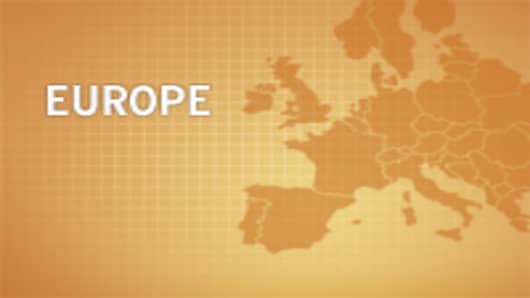Carl Weinberg, the chief economist at High Frequency Economics is very worried about Europe. His central forecast is that the debt crisis will lead Europe into a depression that will mean soaring unemployment, deflation and zero interest rates for the foreseeable future.
After months of inaction, Weinberg believes the time to stop a Greek default has now passed. He believes that once it becomes clear that Greece has defaulted, the market will quickly come to the realization that other euro zone members like Portugal, Ireland, Spain and Italy will be allowed to fail as well.
With the so-called PIIGS (Portugal, Ireland, Italy, Greece and Spain) sitting on 3 trillion euros in debt, Weinberg is assuming losses could ultimately hit 50 cents in the euro, leading to a 1.5 trillion euro hit to the financial system.
This will in Weinberg’s opinion force banks to stop lending. Governments will then be forced to bail them out, elevating debt-to-GDP ratios for national governments to "horrific levels"
“In comparison, Lehman’s bankruptcy left about 600 billion euros in assets to be resolved. The ultimate recovery rate is still unknown,” said Weinberg in a research note on Monday.
The true cost of a euro zone default is impossible to know beforehand due to the huge amount of CDS (credit default swaps) that have been written, according to Weinberg.
“This is a shock that easily spread around the world quickly, as did the hit from Lehman,” he said.
Having spent 2 years offering up solutions to the crisis that have fallen on deaf ears, Weinberg has been looking at how the European Central Bank and national governments can react at this point.
“The most important thing the ECB can do at this time is to use its repo facility to ensure that all banks have enough cash to operate regardless of their short-term solvency or longer-term prospects,” he said.
“The ECB will have to buy a dominant position in all PIIGS bond markets, sterilize those purchases by absorbing cash, and then return that cash to banks in long-term repos,” said Weinberg, who expects such a move to add 2 trillion euros to the ECB’s balance sheet.
Given the euro zone has so far balked at creating some kind of TARP fund and cannot even agree on the scale of the European Financial Stability Fund, Weinberg said governments will have to come up with individual schemes to recapitalize the banks.
“Not all will be able to do so. For stronger fiscal players, like Germany and France, funding can likely be found to create national banking support systems,” said Weinberg, who believes attempts at fiscal consolidation be “torn asunder”.
For the PIIGS, things will much tougher. “If the IMF can invent a facility to lend money to bankrupt governments with no hope of repayment, it may be able to help,” he said. “Otherwise, most PIIGS banks will fail, and no credit at all will be available in these countries.”
This will mean cold turkey with governments forced to live within their means, according to Weinberg.
“Let the Tea Party in the United States watch this experiment carefully,” said Weinberg who believes such action would mean far lower government spending, incomes, demand and employment.
With US and UK banks likely to have big on and off balance sheet exposure, Weinberg warns all they can do is prepare for the worse.
“There is no place to hide from this, at least not in the Euroland. German banks are no safer than Greek ones in this disaster scenario. The myth that bunds are a safe haven from Euroland debt woes will be proven wrong the minute the first German bank announces that it needs public help to recapitalize it,” he said.
Gold will offer the safest haven, according to Weinberg, who fully expects Europeans to move cash under their mattresses in early phases of this crisis.
“The beneficiaries of this flight of cash out of Euroland will be the hot economies of Asia, notably China, India and Korea.” said Weinberg.



